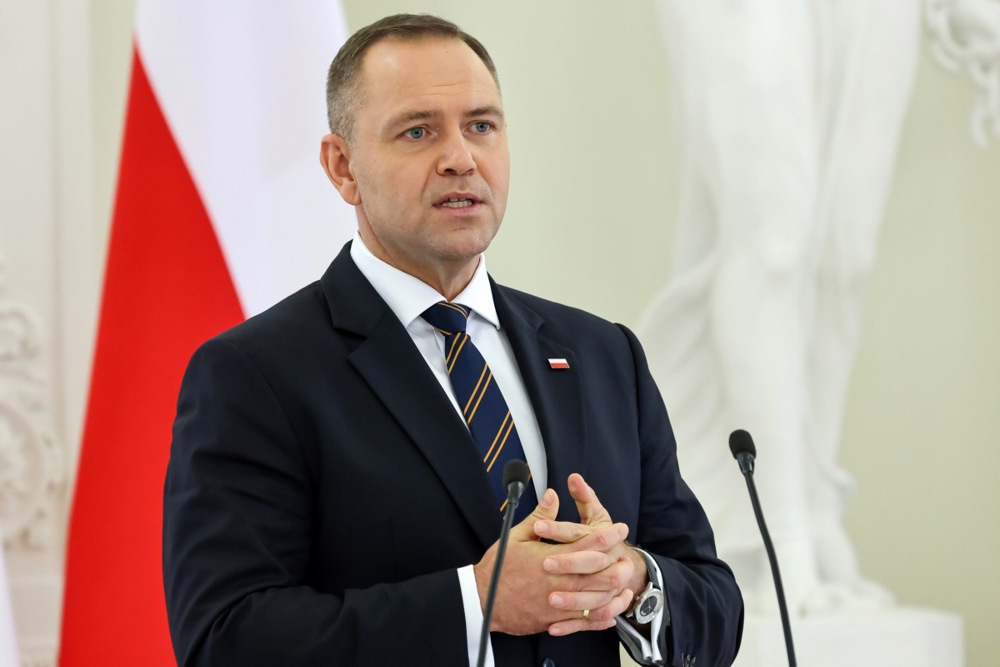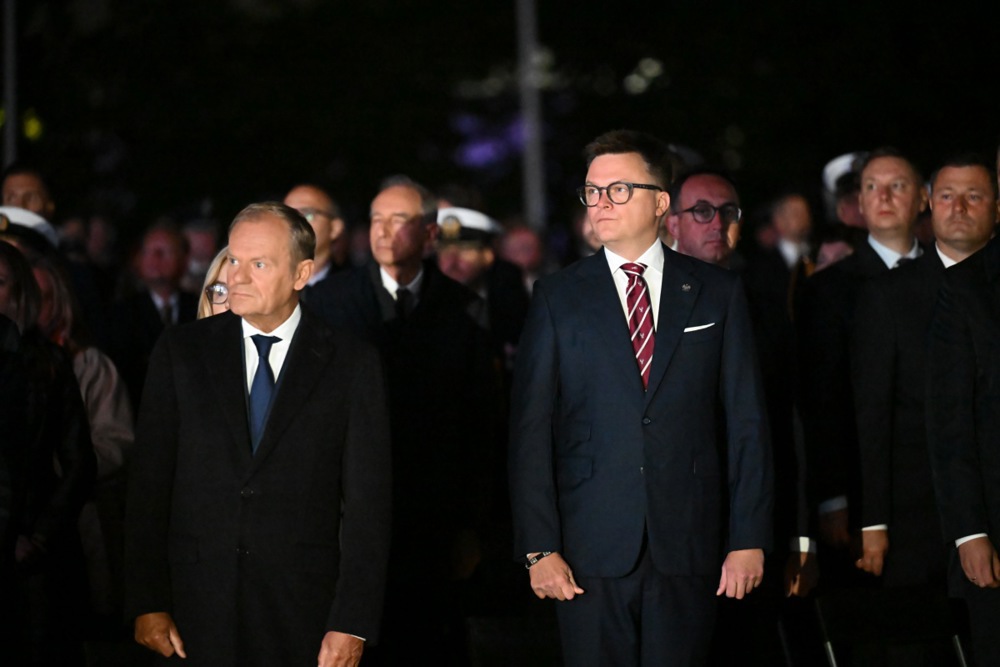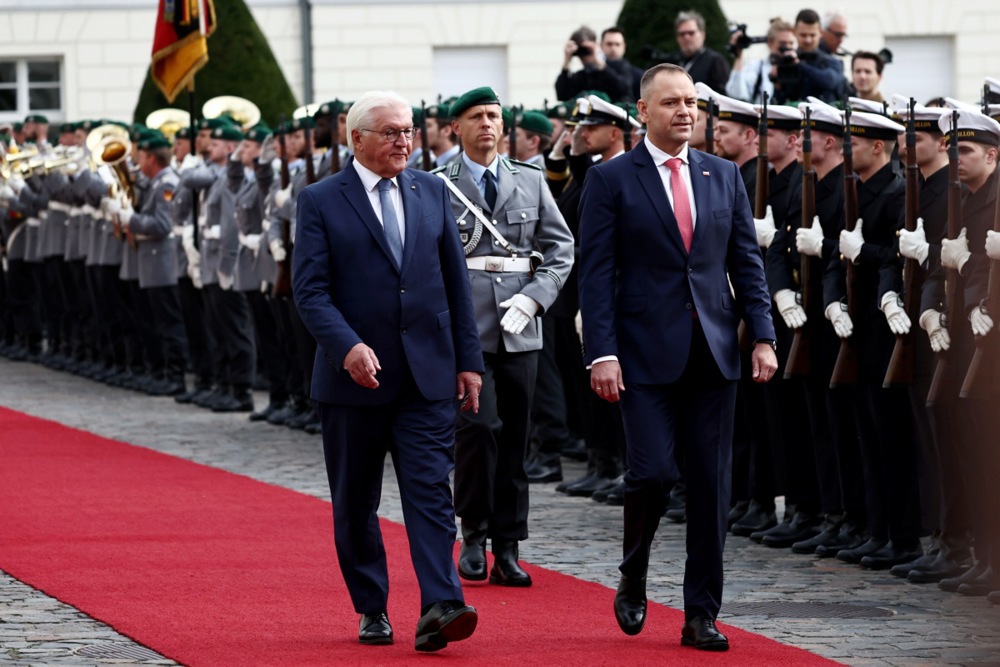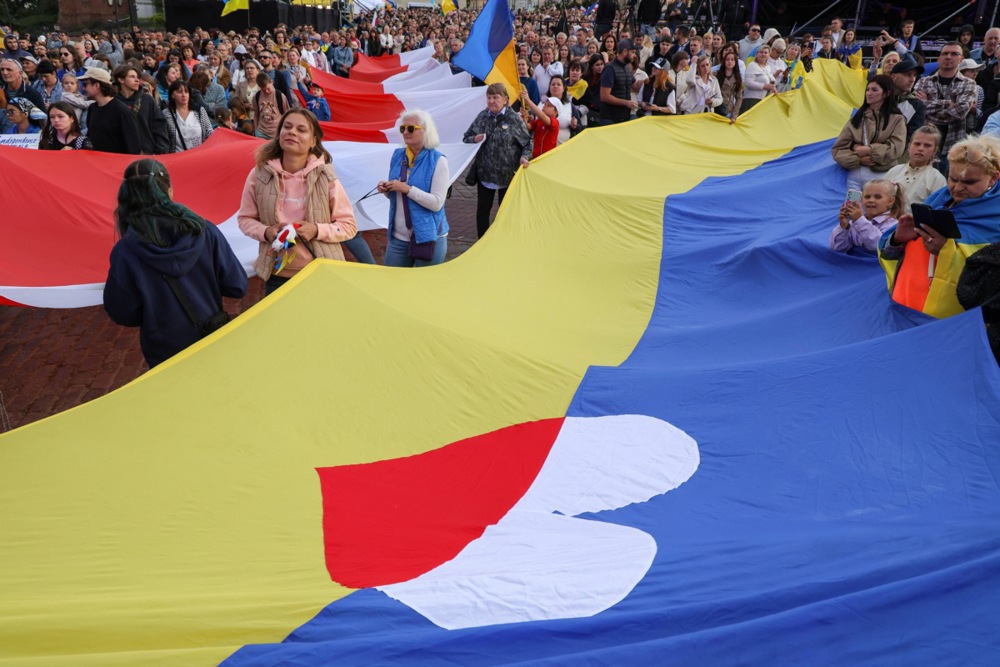Ukraine’s embassy in Poland has condemned legislation proposed by Polish President Karol Nawrocki to criminalise the promotion of ideologies associated with Second World War Ukrainian nationalism.
In the latest chapter of the long-standing dispute between Poland and Ukraine over wartime history, the embassy has criticised the bill for equating Ukrainian nationalism with Nazism and Communism and warned that if the legislation is passed Ukraine “will be forced to take retaliatory measures”.
Nawrocki submitted the bill to parliament on September 29. It adds to the law that makes “promotion of a Nazi, Communist, fascist or other totalitarian system” a criminal offence with a potential prison sentence of up to three years. It also outlaws the prohibition of ideologies advocated by the Ukrainian Liberation Army (UPA) and the Organisation of Ukrainian Nationalists (OUN), led by late nationalist leader Stepan Bandera, who died in 1959.
Both the UPA and OUN fought for Ukrainian independence during the Second World War while collaborating with Nazi Germany.
The UPA was involved in organising the Volhynia massacre, an act of ethnic cleansing, in which more than 100,000 civilian Poles were slaughtered. Poland regards that as genocide while Ukraine rejects the term.
Since the two Maidan revolutions more than a decade ago, UPA and OUN figures have been increasingly venerated, prompting criticism from both Poland and Israel.
Poland’s opposition Conservatives (PiS) last year proposed a law banning the glorification of Banderism and Nawrocki’s legislation is a follow-up to that proposal.
The President said the measure was necessary “to eliminate Russian propaganda and establish Polish-Ukrainian relations based on real partnership, mutual respect and mutual sensitivity“. For this to happen there was a need to “equate Banderite symbols in the penal code with symbols that correspond to German Nazism and Soviet Communism”.
Reacting to Nawrocki’s proposal, a group of 40 Ukrainian historians signed a public statement supported by the Ukrainian embassy in Warsaw in which they expressed concern at the notion of legally equating the UPA and OUN with Nazism and Communism.
They also criticised the legislation for “unilaterally blaming Ukrainians for all events relating to the Volhynia tragedy” and “politicising the issue”.
The Ukrainian academics also sought to portray the legislation as weakening Ukraine and helping Russia.
“Given Russia’s ongoing aggression against Ukraine and the entire civilised international community, we consider as unacceptable actions that weaken Ukraine, precisely because this constitutes the strategic goal of the Russian aggressor, who for centuries has done everything to destroy both Ukraine and Poland,” they said.
The signatories, who called UPA and OUN “anti-imperialist national liberators”, argued that Volhynia was a result of a conflict between Poles and Ukrainians. They said similar crimes were also committed by Poles and that in both cases, the conflicts may have been inspired by German Nazis and the USSR.
In their statement, the Ukrainian historians also warned that if Nawrocki’s bill is adopted, “the Ukrainian side will also be forced to take retaliatory measures”. These included adopting legislation to condemn crimes against Ukrainians during the Second World War allegedly committed by the Polish underground and Poles in the immediate post-war period.
In response to the Ukrainian statement, Nawrocki’s spokesman, Rafał Leśkiewicz, told reporters that the Ukrainian criticism of the proposed legislation was “implementing a scenario written in the Kremlin, triggering another crisis in the historical sphere between Poles and Ukrainians”.
“This law is needed precisely to combat Russian disinformation and attempts to divide Poles and Ukrainians,” said Leśkiewicz. He added that Banderism “was a criminal ideology” and should be treated “the same as Nazism or Communism”.
He said it was wrong to equate the Volhynia massacres with “retaliatory actions” by the Polish underground that resulted in the deaths of “perhaps a thousand Ukrainians”.
The latest quarrel comes after a limited breakthrough in Polish-Ukrainians relation on the issue of the exhumation of Volhynia victims in Ukraine. In that, Poland, after some years of stalemate, was allowed to resume exhuming victims in two locations and Ukraine began to exhume the remains of UPA fighters in Poland.
But the two countries remain divided on Volhynia with the Ukrainians earlier this year condemning Poland’s decision to create a new national day of remembrance for “victims of genocide committed by the OUN-UPA” as being provocative.
Polish politicians from both the PiS and the centre-left government have expressed frustration with Ukraine over its stance on Volhynia.
Some warned that Poland would not allow Ukraine to enter the EU until the controversy over Volhynia and Ukrainian nationalism is resolved.





